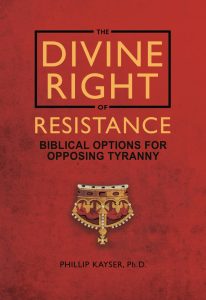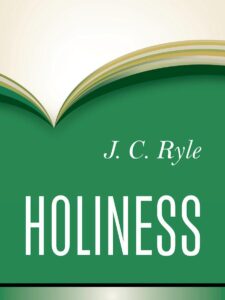The Divine Right of Resistance: Insights from Vindiciae Contra Tyrannos
Introduction
The Vindiciae Contra Tyrannos (A Defense of Liberty Against Tyrants), written in the late 16th century, stands as one of the most compelling defenses of lawful resistance against oppressive rulers. Published under the pseudonym Stephanus Junius Brutus, the work articulates a Protestant justification for resisting tyranny, drawing upon biblical, legal, and historical principles. Central to its argument is the notion that rulers are bound by a divine covenant, and when they violate this trust, the people have not only a right but a duty to resist.
This work was written in the context of the French Wars of Religion, during which Protestant Huguenots suffered persecution under Catholic monarchs. It was crafted to argue for the legitimacy of resisting such persecution while still upholding a lawful and orderly form of governance. By grounding its arguments in Scripture, natural law, and historical precedent, the Vindiciae provided a powerful intellectual foundation for later resistance movements, influencing revolutions in England, the Netherlands, and the American colonies.
The Nature of Legitimate Authority
The Vindiciae asserts that all earthly rulers derive their authority from God, but this authority is not absolute. Instead, it is conditional upon their adherence to divine and natural law. The text distinguishes between a just ruler—who governs according to God’s law—and a tyrant, who rules with arbitrary power and violates the fundamental rights of the people.
A key principle in the work is the idea of covenantal kingship. The ruler is bound by a sacred contract with both God and the people. If he violates this covenant through oppression, injustice, or defiance of divine law, he forfeits his legitimacy. The people, in turn, are not bound to blind obedience but are instead obligated to resist such tyranny.
Furthermore, the text clarifies that resistance does not mean the complete overthrow of government. Instead, it emphasizes the restoration of just rule. The ultimate goal is not chaos or anarchy but rather the reestablishment of a lawful and moral political order. This careful distinction makes the Vindiciae a sophisticated and measured argument rather than a call for reckless rebellion.
Biblical Justification for Resistance
The Vindiciae employs numerous biblical examples to justify resistance against tyranny. It cites figures such as Moses, who led the Israelites out of Egypt in defiance of Pharaoh’s oppression (Exodus 5-14), and the Maccabees, who rebelled against the religious persecution of Antiochus IV. These examples establish the principle that when a ruler demands obedience contrary to God’s law, resistance is not rebellion but rather faithfulness to divine justice.
Additionally, the work refers to passages such as Romans 13, often used to justify absolute obedience to rulers, and argues that the passage assumes a just government that punishes evil and upholds righteousness. When rulers act in direct opposition to these duties, they lose their divine sanction, and resistance becomes necessary.
Beyond these biblical figures, the Vindiciae also points to historical precedents in which tyrannical rulers were lawfully opposed. It references examples from Greek and Roman history, demonstrating that even in the classical world, unjust rulers were sometimes overthrown for the good of the people. By blending biblical and historical evidence, the text constructs a well-rounded argument that transcends any single tradition or context.
The Role of the People and Lesser Magistrates
A crucial argument in the Vindiciae is that resistance should be structured and orderly rather than anarchic. The text advocates for the role of lesser magistrates—local rulers, nobles, and officials—who serve as intermediaries between the people and the sovereign. When a king becomes a tyrant, it is the responsibility of these magistrates to uphold the law and lead resistance.
This doctrine finds historical precedent in figures like the German princes during the Protestant Reformation, who resisted Emperor Charles V’s attempts to enforce Catholic uniformity. Similarly, the Dutch revolt against Spanish rule and the Huguenot resistance in France serve as practical applications of the principles outlined in the Vindiciae.
In addition to lesser magistrates, the people themselves bear a responsibility to uphold justice. The work makes clear that while individual citizens should not take matters into their own hands recklessly, they do have a duty to support lawful resistance when called upon by their leaders. This reinforces the idea that resistance is a communal and organized effort rather than an individualistic or chaotic act.
Tyranny and the Limits of Obedience
The work makes a clear distinction between submission to lawful authority and complicity in tyranny. While passive endurance of hardship is sometimes necessary, there comes a point when obedience becomes sinful. If a ruler commands actions contrary to God’s law—such as idolatry, injustice, or persecution—then resistance is not only permitted but required.
This argument aligns with the broader Protestant tradition of resisting unjust rulers, as seen in the writings of John Knox and the political theories of the Reformation. The Vindiciae reinforces that obedience to God supersedes obedience to earthly rulers when the two are in conflict.
Moreover, the text stresses that resistance should always be the last resort. Before any action is taken, rulers should be admonished, counseled, and given opportunities to correct their ways. If they persist in their tyranny, then active resistance becomes justified. This measured approach distinguishes the Vindiciae from more radical revolutionary ideologies and reinforces its role as a work advocating justice rather than insurrection.
Influence on Later Political Thought
The Vindiciae Contra Tyrannos remains a foundational text in the development of resistance theory, influencing later political thought, including the English Civil War, the Glorious Revolution, and the American Revolution. It affirms that rulers are not above the law and that the people, particularly through their lesser magistrates, have a God-given right to resist tyranny.
The arguments of the Vindiciae found echoes in the works of John Locke, particularly his Two Treatises of Government, which laid the groundwork for modern democratic thought. The idea that rulers derive their authority from the people and are bound by law was instrumental in shaping constitutional government in the West.
Similarly, the American Founding Fathers drew upon these principles when crafting the Declaration of Independence. The argument that a government loses its legitimacy when it violates the rights of the people is a direct extension of the ideas presented in the Vindiciae centuries earlier.
Conclusion: The Divine Mandate for Resistance
Ultimately, the work upholds the principle that true sovereignty belongs to God, and any earthly ruler who usurps that authority through oppression and injustice has abdicated his divine mandate. Resistance, when properly conducted, is not an act of rebellion but an affirmation of divine justice and the moral order ordained by God.
The Vindiciae stands as a testament to the enduring struggle for justice and the right of the people to resist tyranny under the guidance of lawful authority. By balancing resistance with respect for lawful governance, it provides a framework for engaging with unjust rulers in a way that remains relevant to this day.



